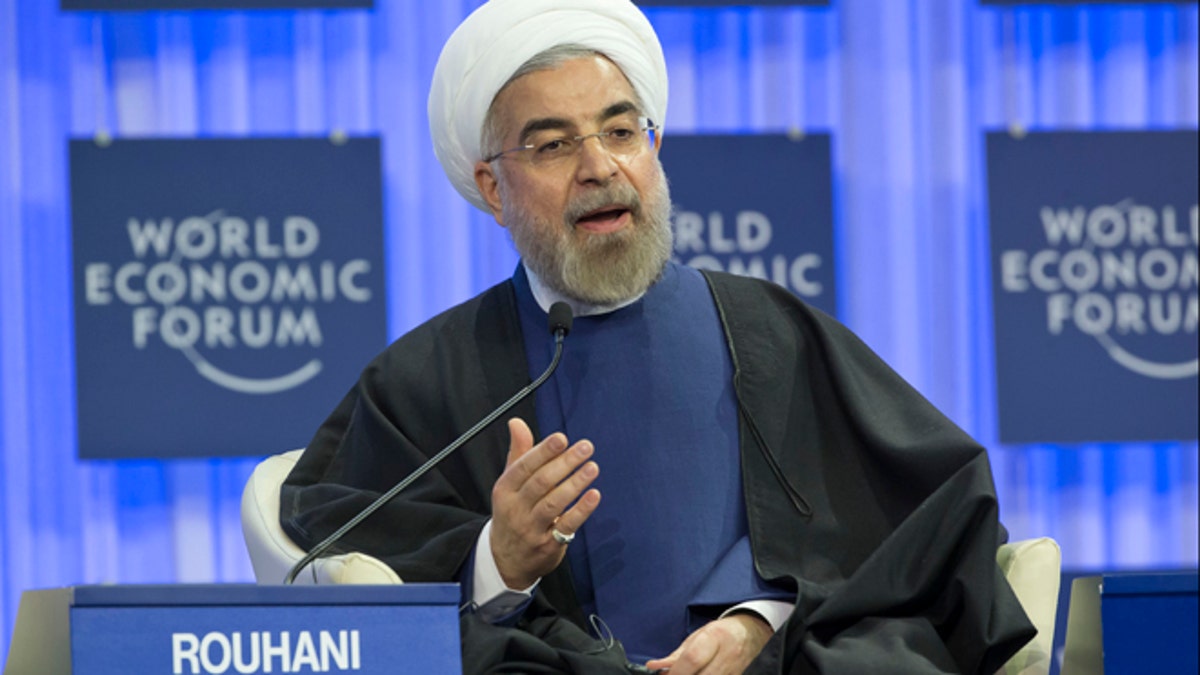
Jan. 23, 2014: Iranian President Hassan Rouhani gestures as speaks during a session of the World Economic Forum in Davos, Switzerland. (AP)
The White House has delayed its plan to impose new financial sanctions on Iran for its ballistic missile program, according to U.S. officials, amid growing tensions with Iran over the nuclear deal struck earlier this year.
The officials said the Obama administration remains committed to combating Iran’s missile program and that sanctions being developed by the U.S. Treasury Department remain on the table. They also said imposing such penalties was legal under the landmark nuclear agreement forged between global powers and Iran in July.
U.S. officials offered no definitive timeline for when the sanctions would be imposed after the decision was made Wednesday to delay them. At one point, they were scheduled to be announced Wednesday morning in Washington, according to a notification the White House sent to Congress.
Republican leaders on Thursday accused the Obama administration of losing its will to challenge Iran after Tehran countered on Thursday that it would accelerate the development of its arsenal.
“If the president’s announced sanctions ultimately aren’t executed, it would demonstrate a level of fecklessness that even the president hasn’t shown before,” said Rep. Mike Pompeo (R., Kan.), a leading critic of the nuclear deal, in an interview.
Critics of the planned sanctions had already charged they weren’t an adequate U.S. response to Iran’s continuing development of its missile program.
President Hassan Rouhani said Thursday morning on Twitter that he had instructed Iran’s Ministry of Defense to accelerate the development of ballistic missiles in response to the news reports of the impending U.S. sanctions.
Asked to comment, State Department spokesman John Kirby said the timeline for missile-related sanctions was unrelated to threats made by Iran on Thursday and the broader nuclear deal recently reached with Tehran. The State Department offered no explanation for the delay.
Mr. Kirby said: “We’ve been clear from the outset that—outside the parameters of Iran’s nuclear program—we would continue to take appropriate actions to address Tehran’s destabilizing behavior.”
